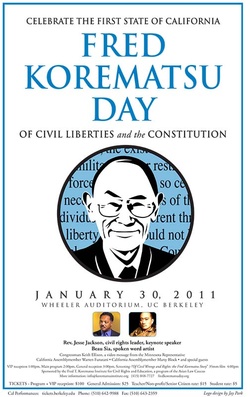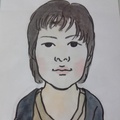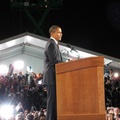I came across an interview clip on YouTube about one Japanese TV drama titled “Japanese-Americans: Ninety-Nine Years of Love.” The story featured the history of Japanese-Americans, focusing on the first and second generation Japanese immigrants, one of the first groups of Japanese who moved to America in the early 1900s. Although the initial motivation of any immigrants who land on America has not changed so dramatically to this day, for those of Japanese descent, their story turned out to be a bit different and perhaps a little unexpected as well.
Sugako Hashida, the script writer of this drama has been working in the industry long enough to know the link between the trend in each generation and its corresponding culture. One of her primary goals as a “fiction” writer is to promote the message of war and peace, a rather obvious theme to be written by a script writer who, supposedly knows that its practice has been visible everywhere—somewhat redundant as well. Instead of using the theme as a broader umbrella of her story, she decided to focus on one racial group, the one which most Japanese are familiar with, at least in their appearance and share of language.
As I was casually watching the trailer, though, I felt that the story was going to be a one-way narrative of Japanese-Americans who, in a portrayal of a third-person perspective, bravely fought for their country that virtually imprisoned their family and friends. I have nothing against the attempted truthfulness of Hashida’s straightforward depiction of the history of Japanese Americans, for they did indeed join the army and fought the war, not for the country of their origin but for the country that openly declared Japan an enemy. Perhaps the implied message in her story was that the modern Japanese have lost the value of family tie and loyalty for their country—Japan, of course. But the story of Japanese-Americans was far more complicated than what can be shown in a ten + hour TV drama.
On January 30, 2011, the state of California celebrated its first Fred Korematsu day. The Korematsu case has now become one of the landmark Supreme Court cases in the US history, and his lifelong fight for justice and equality somehow reminded me of the story of one Japanese-American whom I call Sam. When I was in college, in one of my writing workshop classes, I wrote a profile story of him.
Sam was born and raised in the turmoil of WWII. Selfishly thinking that his childhood experience during the wartime would be the central part of his story, I was struck by his sudden question in the middle of our conversation. Do you know what 442nd is? Four forty second? I was able to construct the three-digit numbers in my head, but that was the end of my internal search for the possibly forgotten answer. OK, I took one year of US history class in high school and additional semesters in college, but my desperate search was to no avail. Nothing is more important than being honest. With that belief in mind, I told him that I had no idea what it meant. An educator with decades of experience as he was, he didn’t pick on my ignorance on the history of Japanese-Americans. Instead of reminding me of my lack of diligence, he looked at me straight into my eyes and said he just wished all the Japanese people could understand. So what was it that he wanted me to understand?
Before the official formation of the 442nd Regimental Combat Team, there was a military unit made of Japanese-Americans in Hawaii, known as the 100th Infantry Battalion. Daniel Inouye, the very well-respected senator of Hawaii, who recently passed away, came to the mainland to recruit a new unit, which would combine with the 100th Infantry Battalion; but he wasn’t welcomed at all. When he came to the concentration camp where Sam lived, everyone booed him—except for one Buddhist monk.The monk gathered all men between the ages of 18 to 25 and made a speech which eventually led the majority of them to voluntarily join the army:
Let me put it this way. If Japan wins the war, you lose because you are Americans. If the United States wins the war, you lose because you didn’t fight for your country. You have to fight for yourself, fight for your family, fight for your brothers and sisters, fight for your mothers and fathers.You’ve gotta show them that you are patriotic and you are fighting for this country no matter who you fight, whether it’s Japan or Germany. You’ve got to go to the war.
Here I want to point out that the monk did not tell them they were “Japanese” but instead called them “American” without the hyphenated racial origin; and Korematsu fought his own battle, too, as an American who believed in racial equality and questioned the very act of the US government imprisoning people of Japanese descent just because they all “shared” the same racial origin with the wartime enemy. He boldly challenged the military order claiming that it was unconstitutional, and the US Supreme Court, decades after its decision and claim on the wartime necessity of concentration camps, overturned his conviction for disobeying the order.
Though Korematsu’s battle, unlike the 442nd, might have been seen as a rebellious act against the US government, it was another way of proving his American identity and believing in the country, making America a better place. While the drama featured the 442nd and its legacy, I felt the need to address the complexity of their stories, for one’s courage to stand up and claim wrongness against authorities during the wartime is surely another legacy to be carried onto future generations.
© 2013 Mina Otsuka






